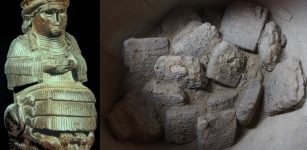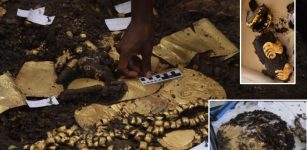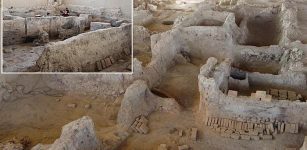Giant Pre-Hispanic Jar Used To Make Mexican Traditional Corn Beer
Jan Bartek - AncientPages.com - It all started in 2008 when archaeologists excavated a fascinating ancient archaeological site Guachimontones (‘Los Guachimontones’) is located just outside the modest little town of Teuchitlán, Jalisco, 43 kilometers (26 miles) west of Guadalajara, Mexico.
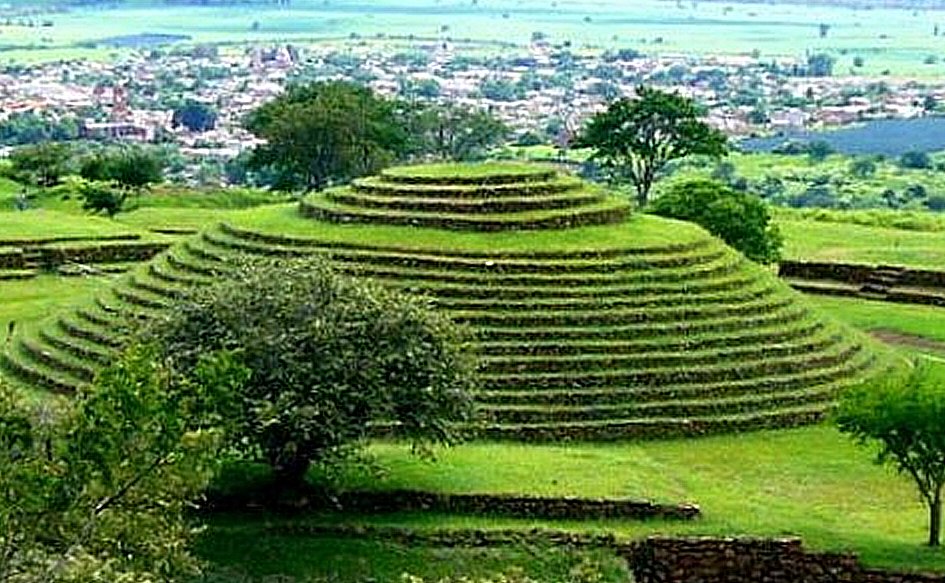 An archaeological site Guachimontones (‘Los Guachimontones’) - located just outside the modest little town of Teuchitlán, Jalisco, 43 kilometers (26 miles) west of Guadalajara, Mexico.
An archaeological site Guachimontones (‘Los Guachimontones’) - located just outside the modest little town of Teuchitlán, Jalisco, 43 kilometers (26 miles) west of Guadalajara, Mexico.
The dominant features at the site are circular stepped pyramids in the middle of circular building complexes, in central-western Mexico. The 60-foot (18 m) tall pyramid at Circle 2 has 13 high steps leading to an upper level, which was then topped with another 4 high steps.
Guachimontones is no doubt, one of the most impressive archeological sites in all of western Mexico.
 Guachimontones, home to approximately 40,000 people, was built by a unique culture, known as Teuchitlán Tradition, one of the pre-Hispanic cultures that flourished in western Mexico.
Guachimontones, home to approximately 40,000 people, was built by a unique culture, known as Teuchitlán Tradition, one of the pre-Hispanic cultures that flourished in western Mexico.
At the site, archaeologists unearthed a large number of artifacts that included six burials, bowls, jewelry, figurines, five ovens, and six big urns, one of them a meter high by a meter wide, writes Mexico News Daily.
An interesting artifact was the tejuino fermentation jar in situ, also discovered in 2008. This kind of jars was used to make tejuino, a traditional corn beer made from corn.
 The tejuino fermentation jar unearthed in 2008 excavations at Guachimontones, Mexico.
The tejuino fermentation jar unearthed in 2008 excavations at Guachimontones, Mexico.
Tejuino was very popular in pre-Hispanic times and still remains a favorite hot-weather drink in Jalisco, Chihuahua, and other places.
The urns are believed to be between 500 and 700 years old, and according to Rodrigo Esparza, archaeologist of the College of Michoacán, chemical analysis of the residues revealed boiled starches from maize and sweet potato, which may have been added to the corn beverage for their high sugar content in order to boost fermentation.
See also:
Who Built The Mysterious Huapalcalco Pyramid – Mexico’s Smallest Pyramid?
Intriguing Ancient Ceremonial Site Of El Tajin In Mexico
Cuicuilco Circular Pyramid: Ancient Astronomical Observatory And Place Of Power
John Pint, the author of the article, writes that the other jars may also have been used to ferment, cook, and store tejuino, a tart beer made from sprouted corn. One of the large fermentation vessels was restored at Mexico’s Western School of Conservation and Restoration (ECRO).
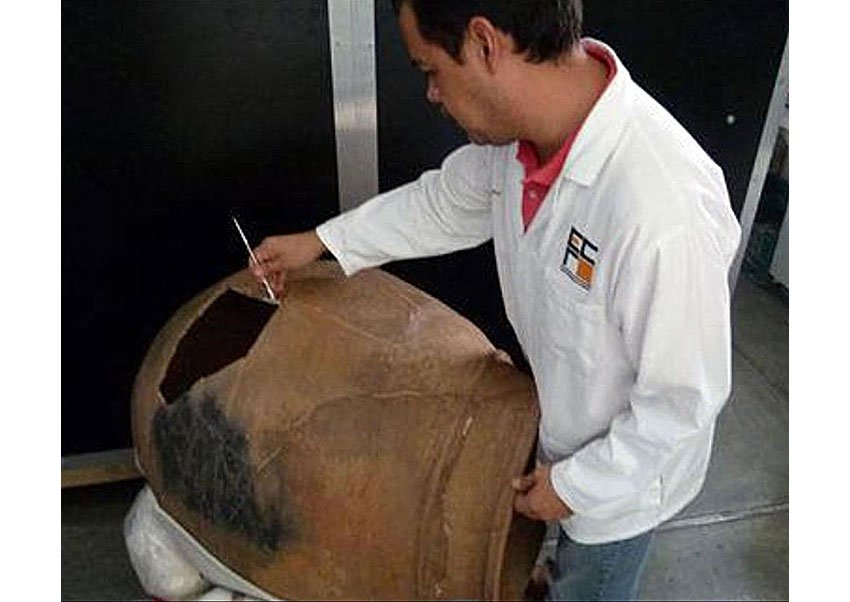 The fermentation jar during restoration at ECRO in Guadalajara. image source
The fermentation jar during restoration at ECRO in Guadalajara. image source
It is said that the jar "found in 2008 weighs about 100 kilos empty so that when it was full of liquid it must have weighed around 200 kilos (441 pounds)".
According to Esparaza, most probably each home had several jars of this size, and added that “the jar will be delivered to the museum and we hope to create an exhibition on tejuino and the other fermented drinks used in pre-Hispanic times and during the first years of the colonial period.”
Read more in the original story - here
Written by Jan Bartek - AncientPages.com Staff Writer




